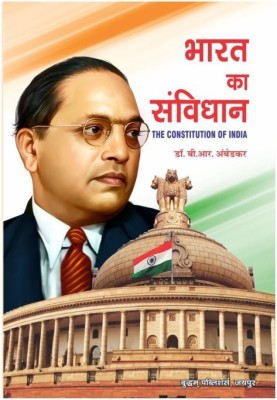
ट्रांसफॉर्मेशन ऑफ मार्जिनेलाइस्ड कम्युनिटीज़ एंड इंक्लूसिव ग्रोथ (हार्ड बाउंड, पी. विस्वनाधा गुप्ता, विलास अधाव)
Share
ट्रांसफॉर्मेशन ऑफ मार्जिनेलाइस्ड कम्युनिटीज़ एंड इंक्लूसिव ग्रोथ (हार्ड बाउंड, पी. विस्वनाधा गुप्ता, विलास अधाव)
इस प्रोडक्ट पर राय देने वाले पहले व्यक्ति बने
₹838
₹900
6% off
उपलब्ध ऑफ़र
T&C
T&C
T&C
Delivery
Check
Enter pincode
डिलीवरी30 जून, सोमवार
?
अगर 1:59 AM से पहले ऑर्डर किया गया
जानकारी देखें
Highlights
- लेखक: पी. विस्वनाधा गुप्ता, विलास अधाव
- 247 पेज
- पब्लिशर: उदय पब्लिशिंग हाउस
सर्विस
- कैश ऑन डिलीवरी उपलब्ध?
Seller
जानकारी
Introduction of the process of liberalization of economic institutions in India has brought forth market fundamentalism. The State led model of social transformation took a back seat. Slow progress on the front of social transformation emerged as one of the major externalities of these new policies. That has also staggered the pace of our development and created a situation where in the marginalized section will be left out of the mainstream growth. There are no two opinions that India has large share of its population as marginalized section. Present economic policies and programs in India have resulted in Jobless growth with eroding purchasing power of the marginalised, Larger investment in urban sector and luxury goods manufacture, Forced commercialization, and Bypassing the earlier plan emphasis on inclusivity and social justice. Development as normally understood essentially comprises of social justice. In India we are more concerned about the social justice as the inequalities are large and increasing. A large share of our population is deprived of minimum basic needs like food, clothing, housing, drinking water, health and sanitation, etc. We have been fighting this battle for over the last six and halfdecades with a fully equipped Planning Commission but with not a great success. Therefore, primary attention must be paid to the creation of jobs for the marginalised sections in the rural areas, thereby reducing the exodus to the urban centres. Providing a reasonably sustained income source to this section of the people may go a long way in ensuring the envisage transformation. This volume consisting of well-researched articles contributed by various shades of repute, is largely focused on the nexus between the social transformation and development in the context of the changing economic policies. This volume entitled Transformation of Marginalized Communities and Inciusive growth, competently planned and edited b Dr. P. Viswanadha Gupta and Prof. Vilas Adhav includes chapters written by eminent scholars and field practitioners with special reference to inclusive growth and social transformation. The editors have painstakingly assembled the material at one place and therefore this volume would be an outstanding contribution to the move towards greater understanding of Inclusive Growth, steering new prospects in analyzing various problems in a practical way of the Socially Marginalized Communities. The editors vision to bring out a volume is a need of the hour in the present Indian situation and it should be appreciated. I am personally happy to be associated with this stream of thinking that earnestly tries to bring the marginalised at the centre-stage. The information assembled in this volume relates to different facets of the marginalized communities. I am sure that such information at one place will help any reader, researchers, planners, policy makers and social activists / NGOS. This will also provide them with a practical and realistic approach to various snags in future actions of management of marginalized communities. Prof. R.S. Deshpande Formerly Director Institute for Social and Economic Change and ICSSR National Fello,
Read More
Specifications
| बुक |
|
| ऑथर |
|
| बाइंडिंग |
|
| पब्लिशिंग की तारिख |
|
| पब्लिशर |
|
| नंबर ऑफ पेज |
|
| लैंग्वेज |
|
Manufacturing, Packaging and Import Info
Safe and Secure Payments.Easy returns.100% Authentic products.
Back to top




